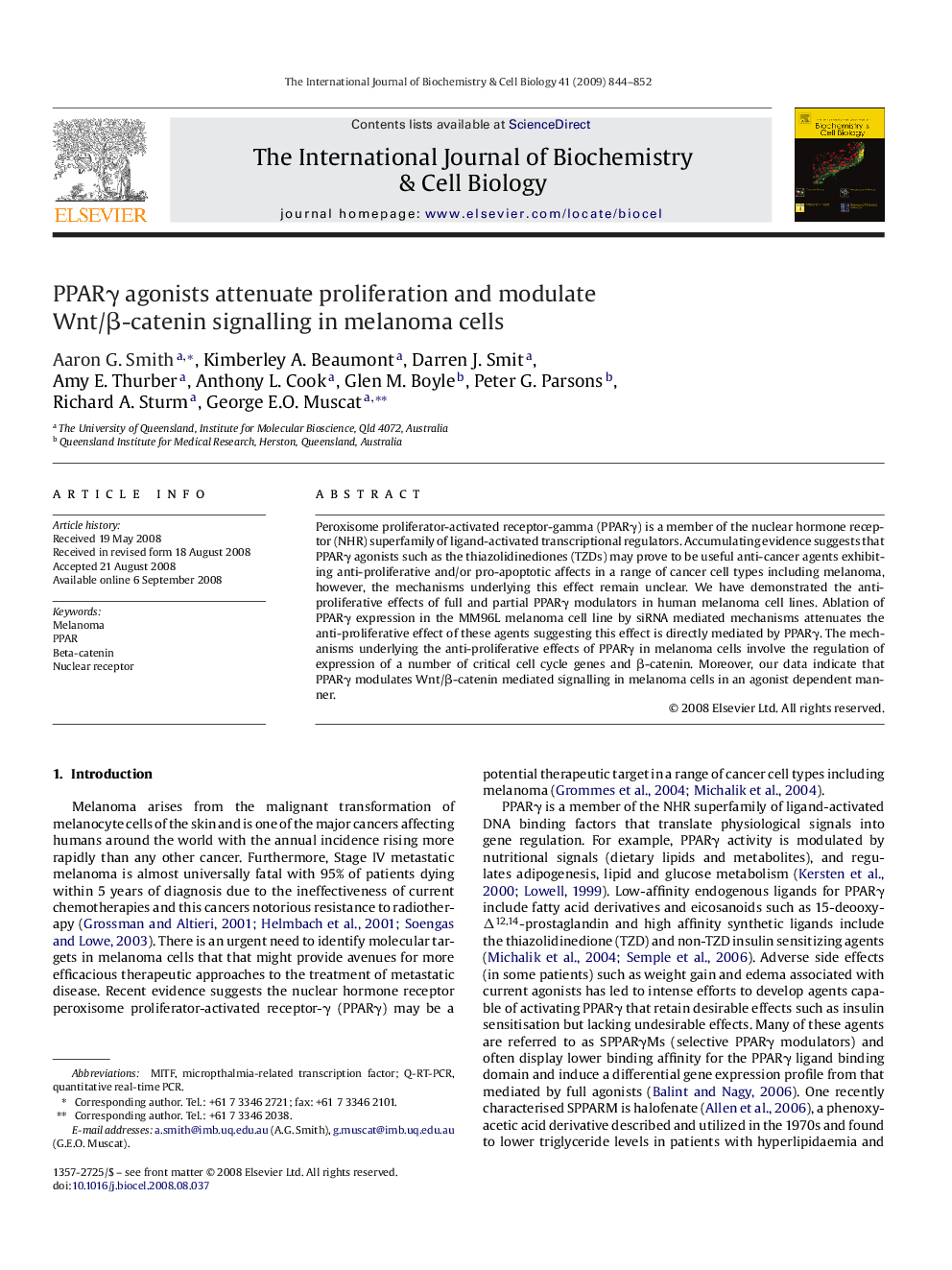| Article ID | Journal | Published Year | Pages | File Type |
|---|---|---|---|---|
| 8325930 | The International Journal of Biochemistry & Cell Biology | 2009 | 9 Pages |
Abstract
Peroxisome proliferator-activated receptor-gamma (PPARγ) is a member of the nuclear hormone receptor (NHR) superfamily of ligand-activated transcriptional regulators. Accumulating evidence suggests that PPARγ agonists such as the thiazolidinediones (TZDs) may prove to be useful anti-cancer agents exhibiting anti-proliferative and/or pro-apoptotic affects in a range of cancer cell types including melanoma, however, the mechanisms underlying this effect remain unclear. We have demonstrated the anti-proliferative effects of full and partial PPARγ modulators in human melanoma cell lines. Ablation of PPARγ expression in the MM96L melanoma cell line by siRNA mediated mechanisms attenuates the anti-proliferative effect of these agents suggesting this effect is directly mediated by PPARγ. The mechanisms underlying the anti-proliferative effects of PPARγ in melanoma cells involve the regulation of expression of a number of critical cell cycle genes and β-catenin. Moreover, our data indicate that PPARγ modulates Wnt/β-catenin mediated signalling in melanoma cells in an agonist dependent manner.
Related Topics
Life Sciences
Biochemistry, Genetics and Molecular Biology
Biochemistry
Authors
Aaron G. Smith, Kimberley A. Beaumont, Darren J. Smit, Amy E. Thurber, Anthony L. Cook, Glen M. Boyle, Peter G. Parsons, Richard A. Sturm, George E.O. Muscat,
